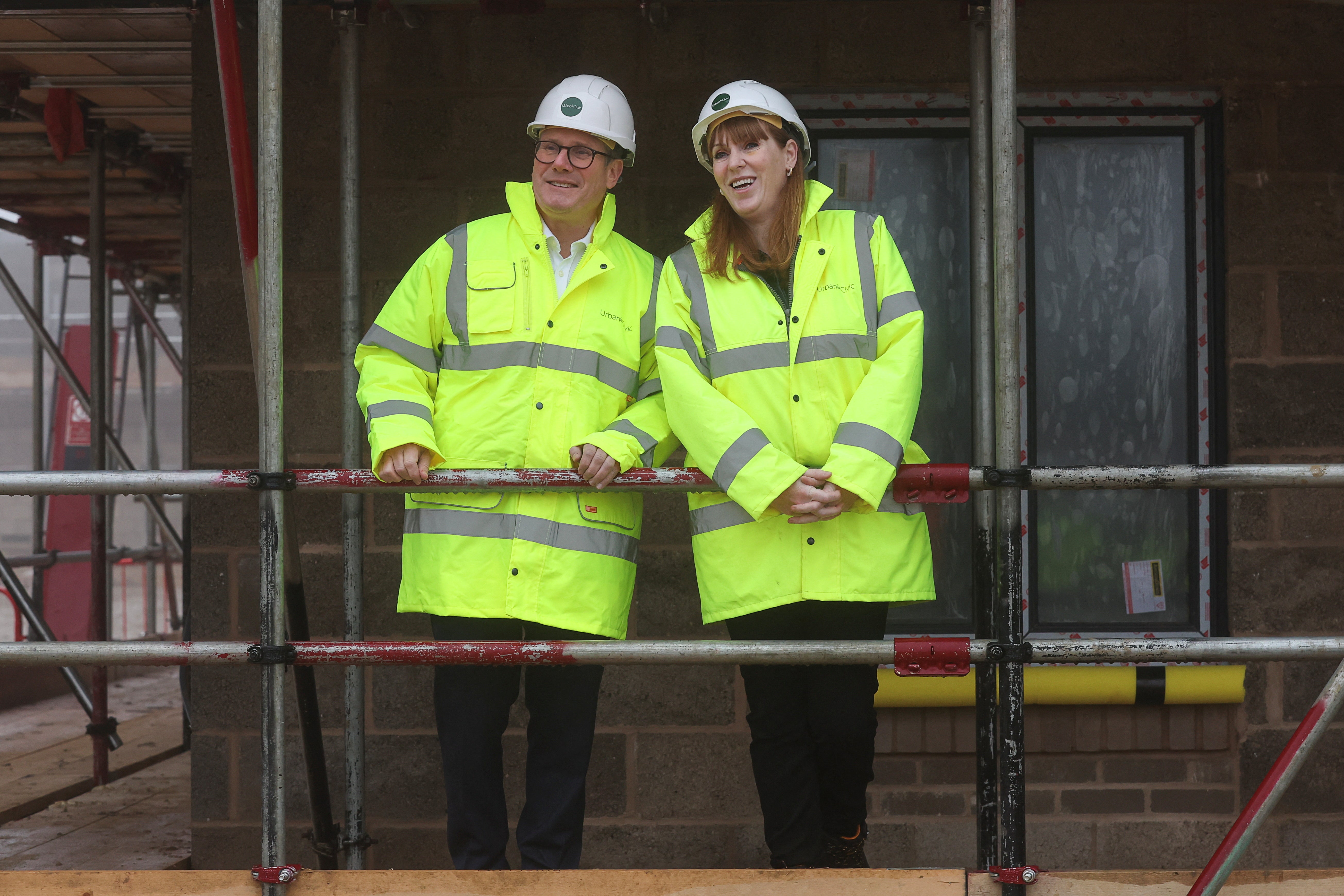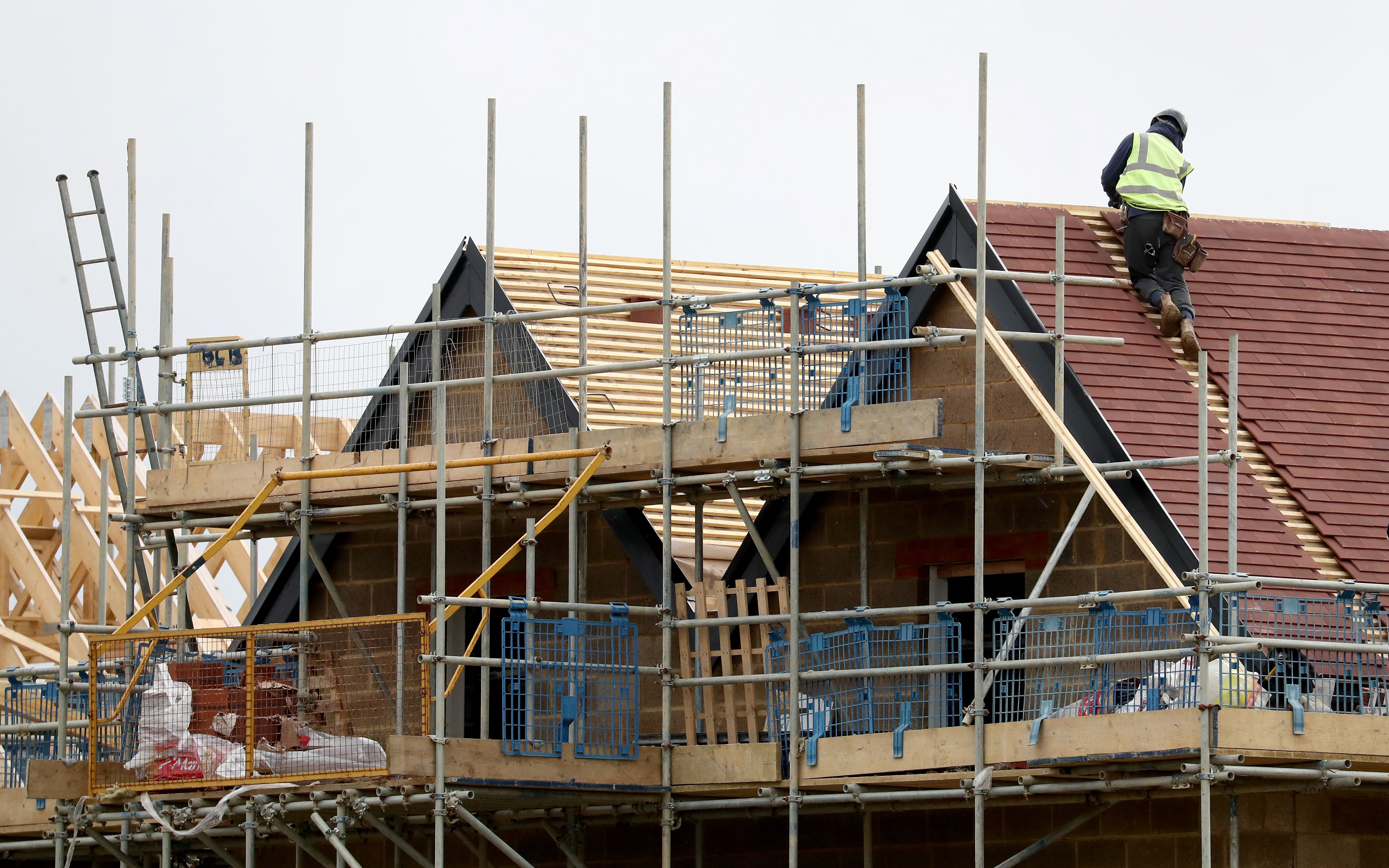The construction industry wants a special visa to be created to import enough workers it says are critical to solving the housing crisis as the government grapples with quelling migration.
The Labour government has pledged to build more than 1.5million new homes in the UK by the end of Parliament, however, concerns within the construction industry over manpower have dampened Sir Keir Starmer’s plans.
The National Federation of Builders (NFB) said Labour’s goals are unachievable because there is a shortage of more than 200,000 construction workers in the UK, as the opposition launched a fresh attack on the government over net migration driving population growth.
The trade association has proposed a three-to-five-year construction visa alongside a “one for one” scheme whereby for every overseas worker employed, a British worker in the same discipline is funded or trained.
“The UK trains less than 20,000 construction apprentices annually and we have identified that we need around 225,000 new construction workers by 2027 to fill demand,” Rico Wojtulewicz, Head of Policy and Market Insight at NFB, told The Independent.
While migration has been blamed as a contributing factor to the UK’s housing crisis, Mr Wojtulewicz said, that in the short term, it was vital to delivering the government’s 1.5million housebuilding target.

“Many say the solution is to train British workers and we should; however, it takes two to three years to get qualified and two further years of site experience to achieve a good level of competence,” he said.
Mr Wojtulewicz said that while this would fix short term issues, “the government must understand how apprentices come forward and are retained”.
The trade body, which represents small and medium-sized contractors (SMEs), said small businesses are unable to afford to keep training apprentices because “they have no work pipeline or are giving up because housebuilding isn’t viable”.
“Labour must do more to accept and fix this legacy failure and put SMEs at the heart of growth, not just so we have a workforce to solve the housing crisis but so we can retrofit our 20million homes and deliver the capital and regional projects which underpin the Governments growth ambitions,” Mr Wojtulewicz added.
The Home Builders Federation (HBF) have echoed Mr Wojtulewicz sentiment, saying skills shortages, an ageing workforce, and Brexit were among the key issues affecting the sector.
The industry body added the sector has not “attracted” enough recruits in recent years, saying a quarter of tradesmen are aged over 50.

The industry’s plea exposes the UK’s reliance on foreign labour to meet key economic demands. The NHS also relies on migrants to staff the under-pressure health system. It also underscores the Labour government’s pledge to reduce migration whilst simultanously meeting those demands.
It comes as ONS figures suggested the UK population could reach 72.5 million by mid-2032 because of net migration, adding further pressure to the government’s homebuilding targets.
Keir Starmer has ruled out setting an “arbitrary” cap to cut “staggeringly high” migration, and Downing Street instead vowed the government would set out a “comprehensive plan” to significantly reduce migration.
The Office for National Statistics (ONS) estimated the rise from 67.6 million in mid-2022 will be driven almost entirely by net migration, with the difference between the number of people arriving and leaving the country estimated to total 4.9 million over the 10-year period.
Conservative shadow home secretary Chris Philp described the projection as “shocking and unacceptable”, adding: “It can and must be stopped from materialising” as he called for a “hard, binding legal cap on visas issued each year”.
The ONS stressed the figures are projections – not predictions or forecasts – because they are based on current and past trends and there is always a level of uncertainty over how the numbers could change as time goes on.
However, the think tank The Resolution Foundation said the new population projections should boost the size of the economy. The projections have revised expectations of the working-age population in 2029-30 by around 400,000. Based on previous scenarios from the OBR, the Resolution Foundation estimated that such an upward revision to the working-age population would boost forecast GDP by around 0.3 per cent – or £12 billion a year.
A spokesman for the prime minister said the government would publish a white paper laying out a plan to end “these staggeringly high migration numbers.”
“As the Prime Minister has previously said, we had a supposed cap in place before and it didn’t have any meaningful impact on reducing immigration,” he said.
The Ministry of Housing, Communities and Local Government has been approached for comment.







